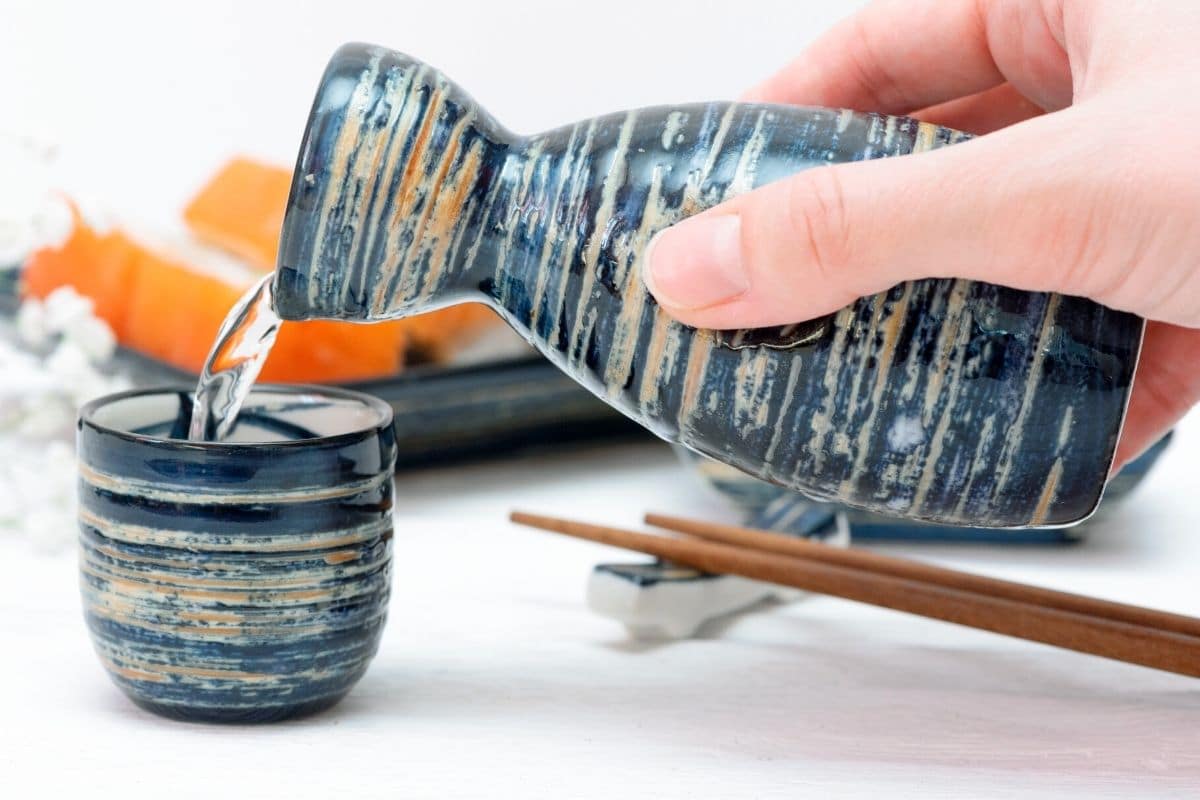Sake is a Japanese rice wine that is popular in Japanese restaurants. It can come in filtered and non-filtered versions. As with any alcoholic beverage, it is important to know if it is safe for those on a gluten free diet. Is Sake Gluten Free?

What Is Sake?
Sake is a type of traditional Japanese alcoholic beverage made with fermented rice. This rice wine is Japanese in origin. Interestingly, although sake is considered wine, its brewing process for fermentation is more in the beer style. You can find premium and house sake at sushi restaurants, Asian grocery stores, and other liquor stores.
The main sake ingredients are rice, water, koji enzyme, and yeast. Koji is the ingredient that breaks up the rice starch into fermentable sugars. The distillation process of sake is pretty straightforward. Typically, sake is stored in sake barrels that do not use a wheat groat paste.
Note that premium sake is made with sake rice, and table sake is made with table rice. The alcoholic content of sake is much higher than beer or wine. The ABV is 15-20%, compared to 3-9% for beer and 9-16% for wine.
This post may contain affiliate links. Please read our Disclosure Policy.
Whether alcohol is gluten free or not is a common question for those with celiac or non-celiac gluten sensitivity. Check out all of my research on alcohol by reading my gluten free alcohol list.
Types Of Sake:
There are a couple of different types of sake. When Japanese sake is created, the fermented mixture is cloudy and contains a lot of particulate matter left over. You can buy sake unfiltered like this, but it is filtered. Many sake brands make both of these types.
- Filtered sake is just as it sounds. The unfiltered sake is filtered to remove the cloudiness and particles. Filtering not only gives sake a clear appearance but also refines the flavor. Filtered sake is run through mesh and paper filters to remove as many leftover rice particles as possible.
- Unfiltered sake, or cloudy sake, is filtered with a coarse filter to remove the larger rice particles. It still has a cloudy appearance and some small particulate matter.
Answer: Is Sake Gluten Free?
Good news! Sake lovers will delight in knowing that PREMIUM sake is considered gluten free. It is made with rice and pure ingredients and has no gluten-containing grains.
Non-premium sake may or may not be gluten free. Non-premium sake tends to have additional ingredients as additives and flavorings added. These added ingredients are dangerous to those with celiac disease or gluten intolerance. Non-premium sake can contain trace amounts of gluten.

Don’t forget to check out Is Sushi Gluten Free if you are headed to a Japanese restaurant!
Premium Sake Brands That Are Gluten Free:
Junmai sake, which means pure rice sake, is considered the safest sake for gluten-free people. Some popular premium sake brands include:
- Tamagawa
- Dassai
- Junmai
- Gekkeikan
- Sohomare
- Taiku Junmai
- Soto Premium Sake
- Hakutsuru
- Ginjo


